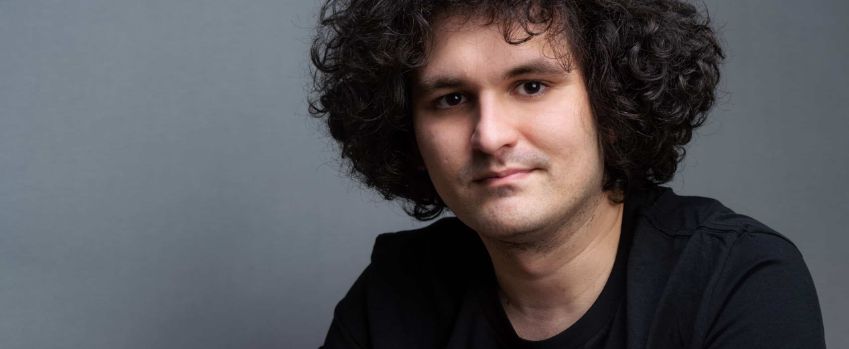In a stunning turn of events, the narrative of FTX founder Sam Bankman-Fried takes a darker twist, as a New York jury on Thursday convicted him of orchestrating a fraudulent scheme that saw customers and investors lose a staggering $10 billion. Bankman-Fried, once hailed as a cryptocurrency luminary, faced the consequences of his actions after a monthlong trial that shattered the illusions surrounding his meteoric rise.
Despite his four days on the witness stand vehemently denying any wrongdoing, the jury dismissed Bankman-Fried’s assertions that he never intended to defraud customers or deceive them. The downfall of FTX, formerly the world’s second-largest crypto exchange, culminated in bankruptcy a year ago, exposing the extent of the financial malfeasance.
Assistant U.S. Attorney Danielle Sassoon, in a poignant address to the jury, revealed how Bankman-Fried had transformed customer accounts into his “personal piggy bank,” vanishing with as much as $14 billion. The trial, reminiscent of the 2009 Bernard Madoff case, showcased a scale of fraud not witnessed since, leaving thousands of investors grappling with losses exceeding $20 billion.
At 31 years old, Bankman-Fried’s prosecution highlighted the cryptocurrency industry’s emerging landscape and a cadre of young executives residing in a lavish $30 million Bahamas apartment, harboring aspirations of dominating the new financial frontier. U.S. Attorney Damian Williams asserted that their actions constituted one of the most significant frauds in U.S. history.
The courtroom drama underscored the stark contrast between the present-day Bankman-Fried, donning a suit with short hair, and the iconic figure with disheveled hair and shorts that marked his early foray into the crypto world. Prosecutors strategically presented images of Bankman-Fried in luxurious settings, from sleeping on a private jet to mingling with celebrities at the Super Bowl, portraying him as someone enamored with the allure of celebrity.
In a last-ditch effort, defense lawyer Mark Cohen contended that the prosecution sought to vilify Bankman-Fried, dismissing the portrayal of him as a villain or a monster. However, the prosecution leaned heavily on the testimonies of three former confidants, including Bankman-Fried’s ex-girlfriend Caroline Ellison, who disclosed how he exploited Alameda Research to drain billions from FTX customer accounts.
The money, prosecutors alleged, fueled Bankman-Fried’s ascent to influence and power, manifested through political contributions, investments, and a high-profile publicity campaign featuring celebrities like Larry David and Tom Brady. Ellison’s emotional testimony revealed Bankman-Fried’s ambitions to lead colossal enterprises, wield financial influence, and nurture aspirations of a future presidential run.
FTX co-founder Gary Wang’s testimony unveiled how Bankman-Fried directed the insertion of code into FTX’s operations, facilitating Alameda Research’s unrestricted withdrawals and a staggering credit line of up to $65 billion. Nishad Singh, FTX’s former head of engineering, expressed his shock and despair upon realizing the magnitude of the fraud, a revelation that left him contemplating suicide.
Ellison, Wang, and Singh, having pleaded guilty to fraud charges, provided damning testimony against Bankman-Fried in the hope of leniency. Bankman-Fried, apprehended in the Bahamas and extradited to the U.S., experienced a tumultuous legal journey, from a $250 million recognizance bond to eventual incarceration for alleged attempts to influence trial witnesses.
Throughout the trial, prosecutors scrutinized Bankman-Fried’s public statements, online declarations, and Congressional testimony, highlighting his repeated assurances to customers about the safety of their deposits. Yet, as customers frantically sought to withdraw their funds, his reassuring tweet on November 7, 2022, claiming “FTX is fine. Assets are fine” proved to be a deceptive facade. FTX filed for bankruptcy four days later, marking the precipitous end to an era tainted by deception.
In his closing argument, Assistant U.S. Attorney Nicolas Roos derided Bankman-Fried’s rehearsed testimony, contrasting it with the uncomfortable stumbles and lapses in memory during cross-examination. The prosecutor emphasized the stark dichotomy between the charismatic entrepreneur presented on direct examination and the evasive figure who conveniently “couldn’t recall” over 140 details about his company and public statements under scrutiny.
The conviction of Sam Bankman-Fried underscores the fragility of trust in the cryptocurrency industry and serves as a cautionary tale for those who wield power in the ever-evolving financial landscape.


